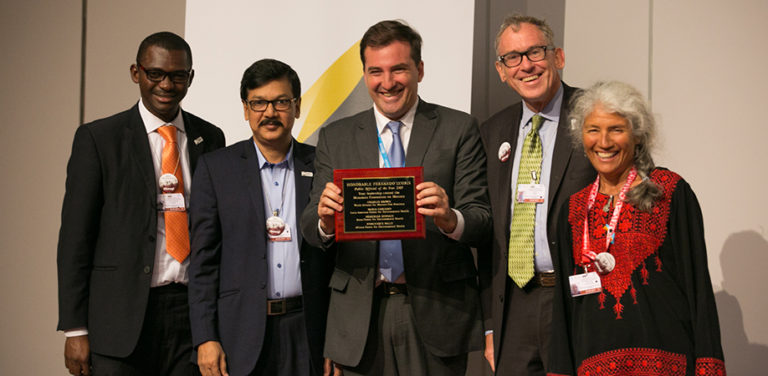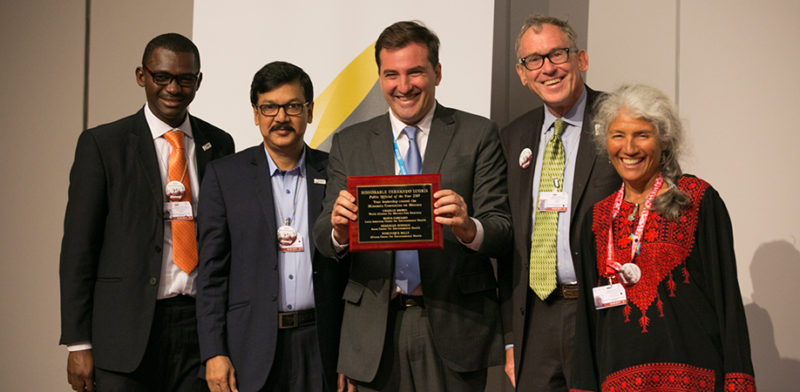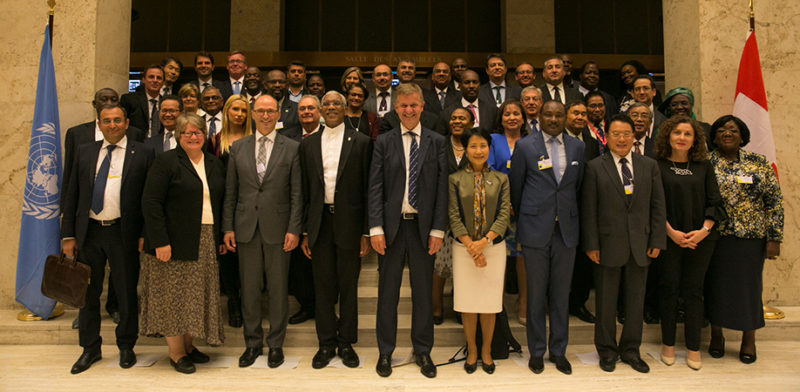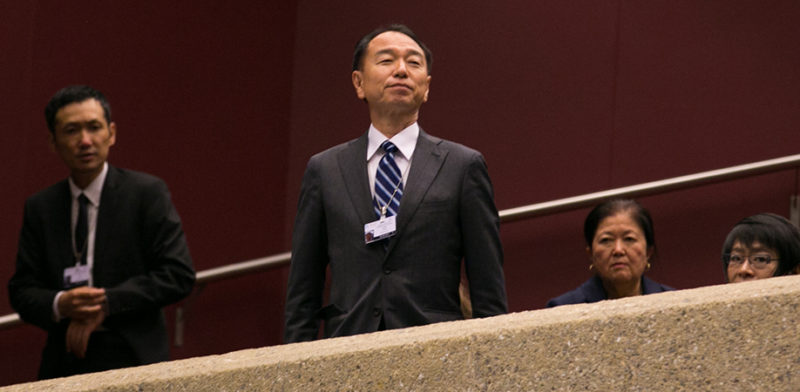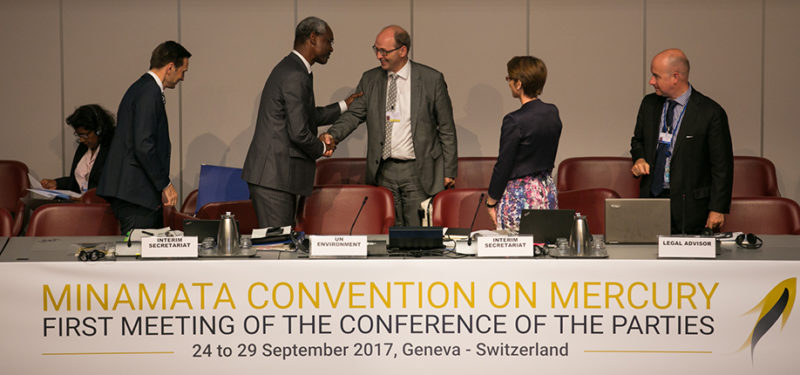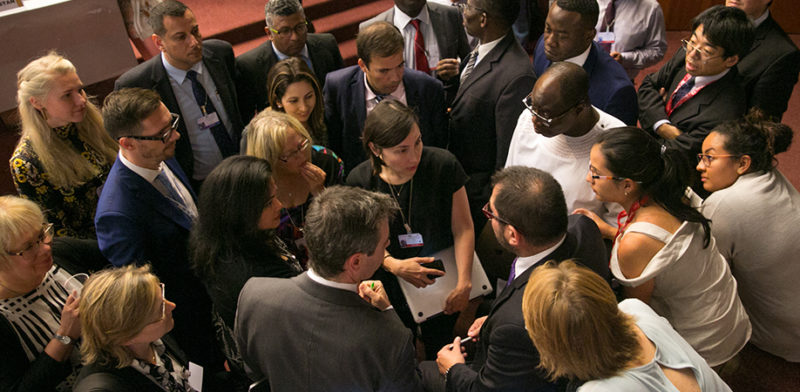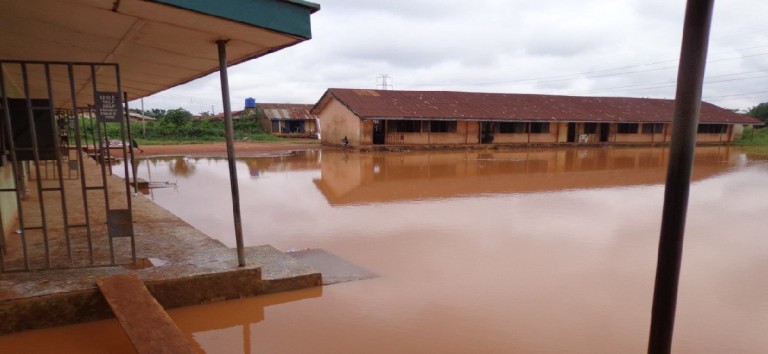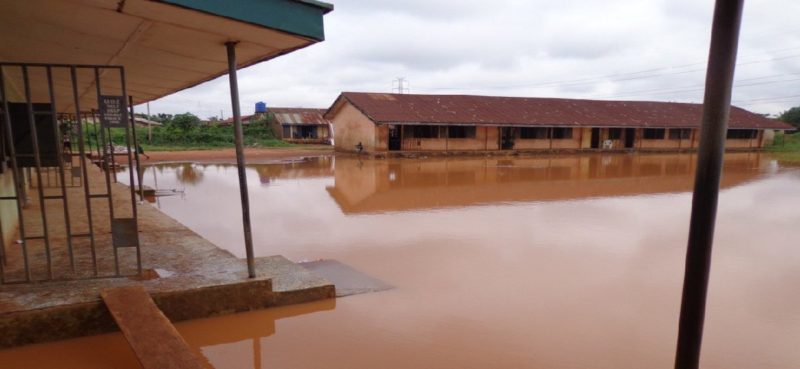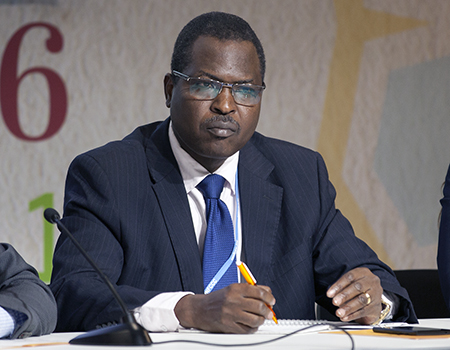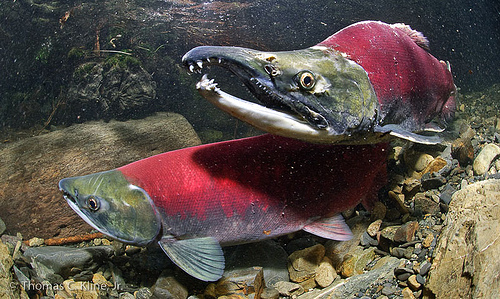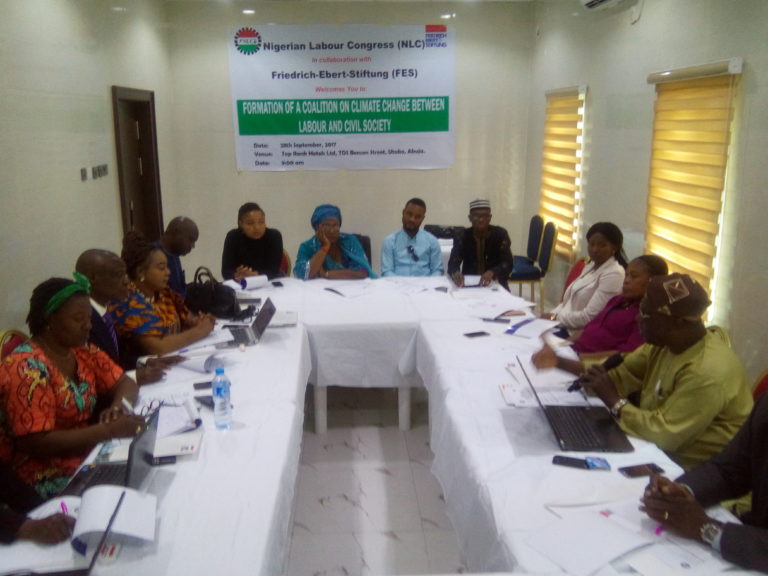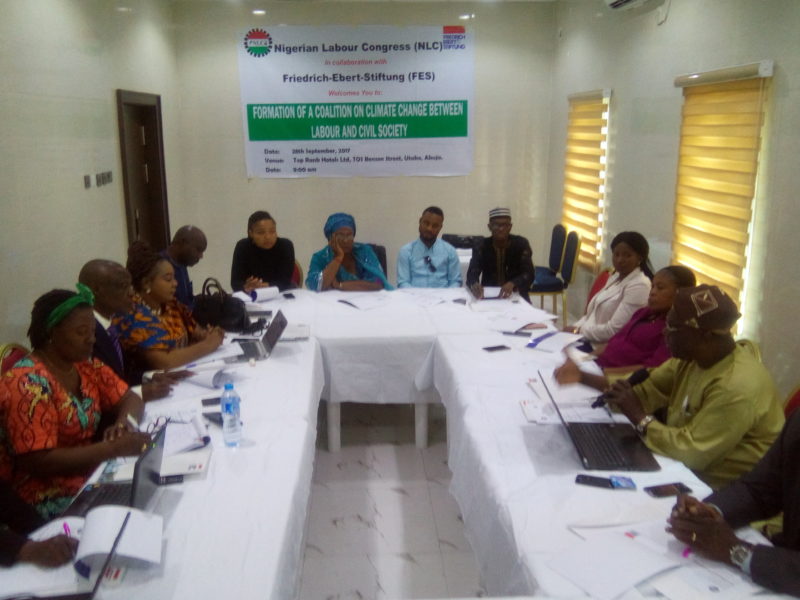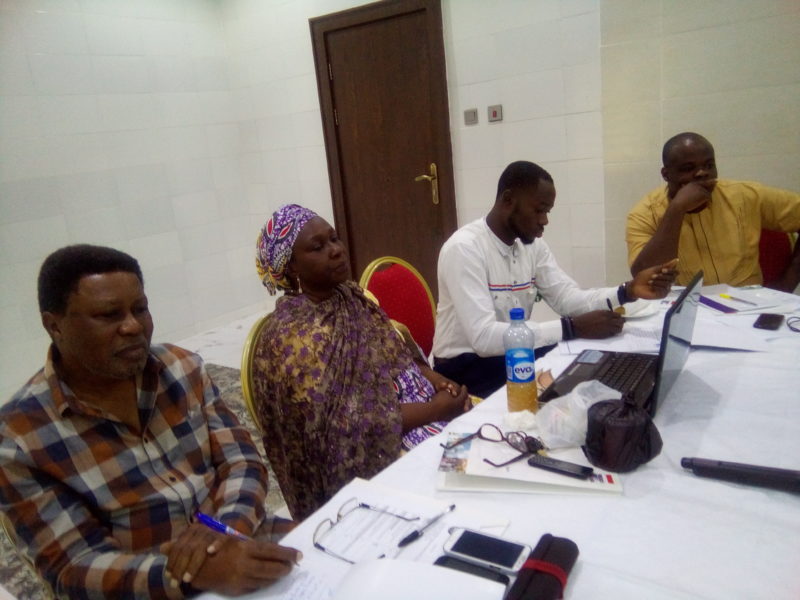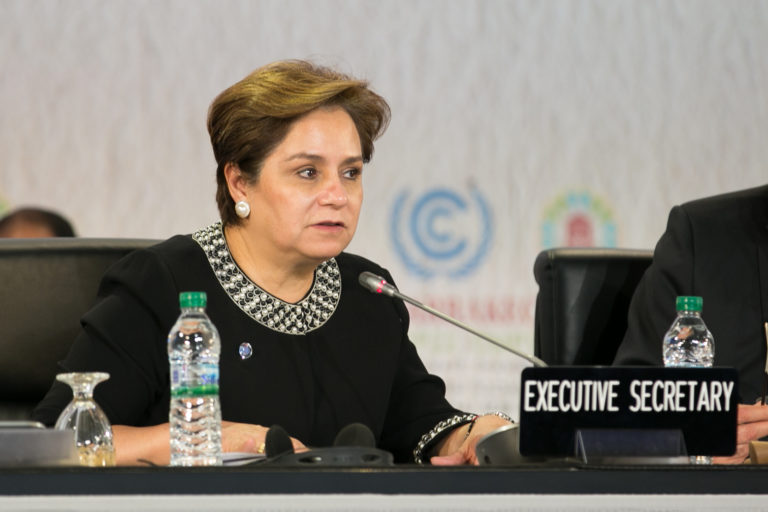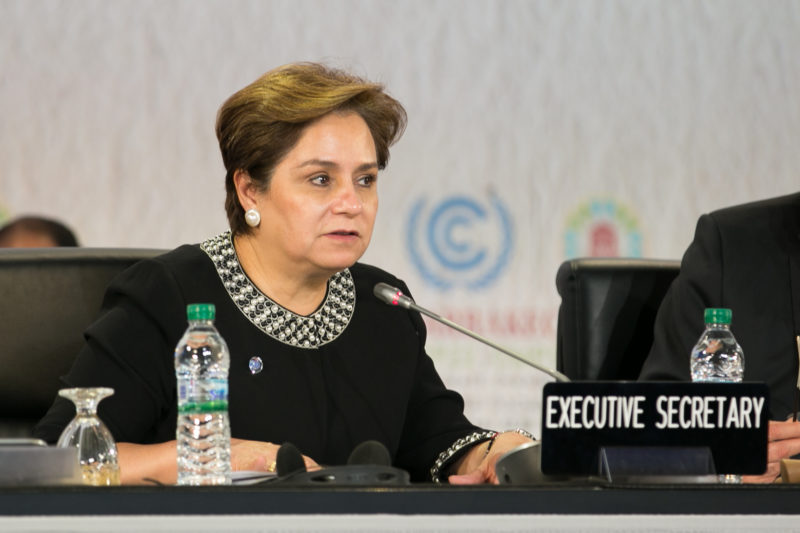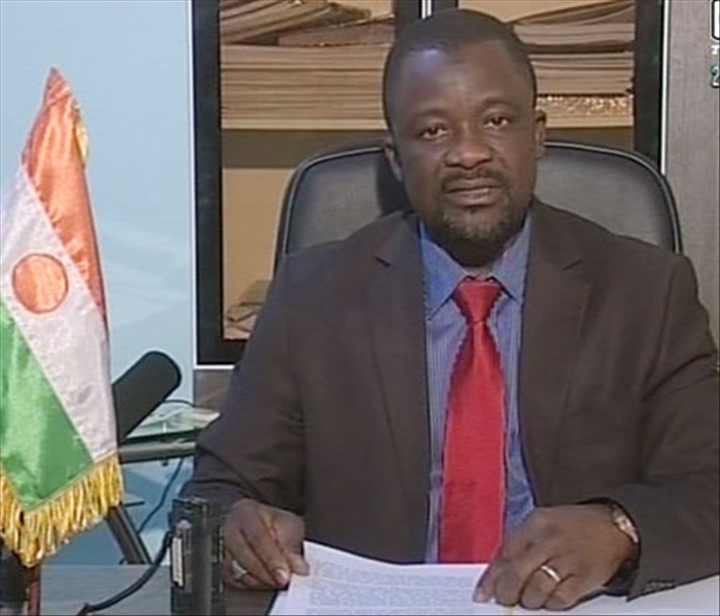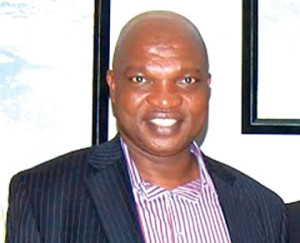A constitutional lawyer and Human Rights Activist, Chief Mike Ozekhome (SAN), has described the entire National Day broadcast by President Muhammadu Buhari on the occasion of Nigeria’s 57th Independence as disappointing.
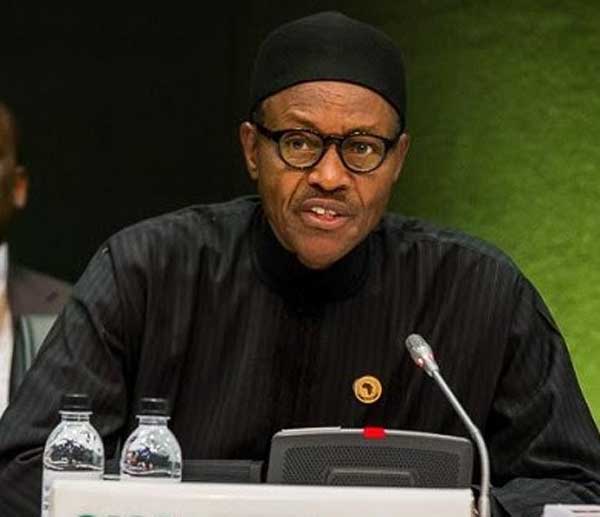
In a statement issued on Sunday, October 1, 2017, Chief Ozekhome further described the broadcast as another opportunity lost.
“Buhari lost yet another golden opportunity to balm bruised nationality’s ego and cement Nigeria’s yawning cleavages, hate and divisiveness,” Ozekhome stated, adding that the broadcast was very unpresidential and unreconciliatory in all ramifications.
According to him, Mr. President has left the real issues and pursued trifles.
“The speech was bereft of nobility of statesmanship and devoid of a calm grasp and appraisal of the dire straits Nigeria is currently in. The broadcast was rabidly narcistic, parochial, nepotic and clanish, as it failed to see anything wrong with the blatant and well reported threats by the Arewa youths to quit fellow Nigerians from their domains.
“The speech followed his now well worn out fixation of perceived hatred for the Igbo race, whose leadership he needlessly scurilised and lampooned, for allegedly being behind IPOB and other agitations.
“I doubt hearing him mention anything about gun wielding herdsmen that literally vanquish citizens in their own homesteads across Nigeria. The President celebrated mediocrity and edified his government’s non performance two and half years down the line.
“I genuinely wondered if he was discussing the same country, Nigeria, that I am in, or another utopian planet, Mars. The beautiful picture of a peaceful country he painted so glowingly and artistically with the paintbrush of breathless satisfaction is quite different from the stark reality on ground, which every beleaguered Nigerian labours under.
“His speech writers either wallowed in utopian mystic of redemptive mesianism or in crass fraud and grand deception. But Nigerians are no fools,” Ozekhome stated.
The lawyer faulted Mr. President for saying that it was the first time a government at the centre is losing the governorship, senatorial and Houses of Assembly’s elections to the opposition.
“No sir, wrong. Whoever gave Mr President this false electoral history has done him incalculable disservice and great damage and ridicule. Rememner Ondo State (Labour Party), Osun and Edo States (AC), Anambra (APGA), etc? Not only did the ruling PDP party lose the elections to those opposition parties, the then President Goodluck Ebele Jonathan actually rolled out the drums and congratulated the new governors, senators and House members.
“Peter Obi won the Anambra State governorship election in 2010 for the second time on the platform of APGA. Former President Obasanjo was the President at the centre under the PDP just as Bola Tinubu won the Lagos State governorship seat twice under AD and ACN with Obasanjo as President under PDP at the centre. Must everything be predicated on falsehood, force, threats and gun boat diplomacy?” he demanded.
By Chinyere Obia

